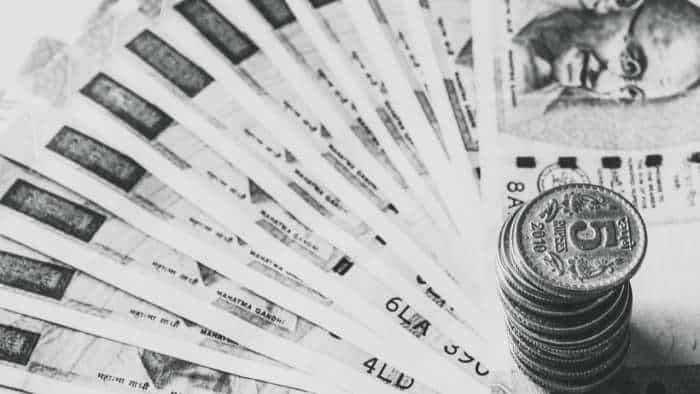PM-AASHA: New scheme is repackaged, will not benefit much
The government had claimed that the new rates represented the steepest ever increase in MSP since the country gained Independence. The hikes were aimed at offering farmers a 150% return on their input costs on each crop and input costs that include heads such as household labour. In some cases, the government offered well above the promised 50% over input cost price, in one case it offered over 90% of the input cost price.

The government launched the Pradhan Mantri Annadata Aay Sanrakshan Abhiyan (PM-AASHA) last week in an attempt to provide further benefit to farmers growing pulses and oilseeds from the higher minimum support prices (MSPs) that were announced earlier. The new scheme will be a mix of three mini schemes: direct procurement from farmers (price support scheme or PSS), reimbursing them for losses incurred when wholesale market prices fall below the announced MSP (price deficiency payment scheme or PDPS) and a pilot project for procurement by private traders at MSP for the government.
The procurement support scheme follows a significant increase in the MSP for kharif crops including paddy and pulses announced earlier, in line with Prime Minister Narendra Modi’s promise of doubling farmers’ incomes by 2022.
The government had claimed that the new rates represented the steepest ever increase in MSP since the country gained Independence. The hikes were aimed at offering farmers a 150% return on their input costs on each crop and input costs that include heads such as household labour. In some cases, the government offered well above the promised 50% over input cost price, in one case it offered over 90% of the input cost price.
The latest round of increases came after a brief lull: MSPs witnessed double-digit growth over agriculture years 2009-2013 but then moderated for various agricultural products in recent years, according to analysts with Crisil. “While the average annual growth between agriculture years 2009 and 2013 was 19.3%, it was only 3.6% between 2014 and 2017. AY 2018 has seen a slight uptick, with the average MSP hike for kharif crops at 6.3%, compared with 4.9% in 2017. But overall, limited support from the floor price has further depressed market prices,” Crisil had said.
But announcing higher MSP does not automatically lead to an increase in farmers’ incomes. The penetration of the MSP system is just 5-6% so that an overwhelming 94-95% of the farmers remain out of the MSP net anyway.
In this scenario, where MSP itself is immaterial to a majority of farmers, how does PM-AASHA help them? Even for those farmers who manage to sell at MSPs, unless their produce is procured by the government at that price, the entire effort is wasted. Hence, the emphasis on widening procurement is a must. This is where the new scheme comes in. Especially, the pilot proposed for private parties to conduct procurement of oilseeds for the government should ensure better procurement in those states where oilseed production is considerable.

An official statement said that for oilseeds, the pilot district selected by the state will cover one or more crop of oilseeds for which MSP is notified. Since this is akin to PSS, involving physical procurement of the notified commodity, it shall substitute PSS/PDPS in the pilot districts.
The selected private agency shall procure the commodity at MSP in the notified markets during the notified period from the registered farmers in consonance with the PPSS Guidelines, whenever the prices in the market fall below the notified MSP and whenever authorised by the state/UT government to enter the market and maximum service charges up to 15% of the notified MSP will be payable.
Good monsoon rains this year have meant excess production of some oilseed crops and if extra measures are not announced, then the market dynamics could hurt farmers.
But farmer representatives are far from happy. Sudhir Panwar, president of Kisan Jagriti Manch, told DNA Money “Not much is new in the policy, existing schemes are being repackaged. PDPS is nothing but the ‘Bhavantar Bhugtan Yojana’ scheme which is already being implemented in MP.”
Watch this Zee Business video
“The market intervention scheme also exists with NAFED. What is new is the pilot the government has announced where private players will purchase oil seeds and get a commission,” he said.
Source: DNA Money
Get Latest Business News, Stock Market Updates and Videos; Check your tax outgo through Income Tax Calculator and save money through our Personal Finance coverage. Check Business Breaking News Live on Zee Business Twitter and Facebook. Subscribe on YouTube.
11:02 AM IST












 CCEA approves infusion of Rs 10,700 crore equity in state-owned FCI for working capital
CCEA approves infusion of Rs 10,700 crore equity in state-owned FCI for working capital Government's priority is farmers’ welfare: Agriculture Minister Shivraj Singh Chouhan
Government's priority is farmers’ welfare: Agriculture Minister Shivraj Singh Chouhan Government should devise alternative mechanisms of MSP to guarantee fair price to farmers: SBI
Government should devise alternative mechanisms of MSP to guarantee fair price to farmers: SBI Govt readies 'MSP Guarantee formula', likely to procure 3 varieties of pulses, maize at MSP if farmers opt for crop diversification
Govt readies 'MSP Guarantee formula', likely to procure 3 varieties of pulses, maize at MSP if farmers opt for crop diversification Minimum Support Prices hike for rabi crops gets Cabinet nod; masur, mustard see highest rise
Minimum Support Prices hike for rabi crops gets Cabinet nod; masur, mustard see highest rise